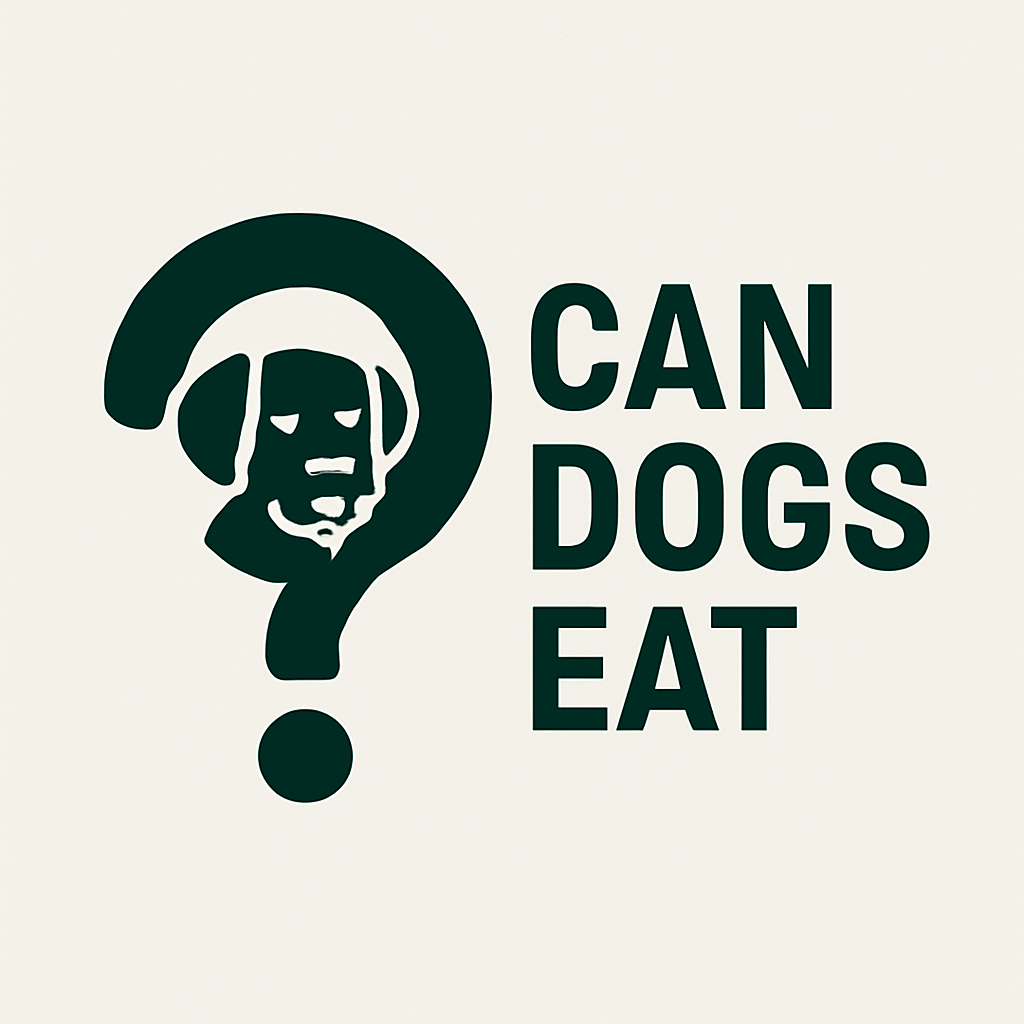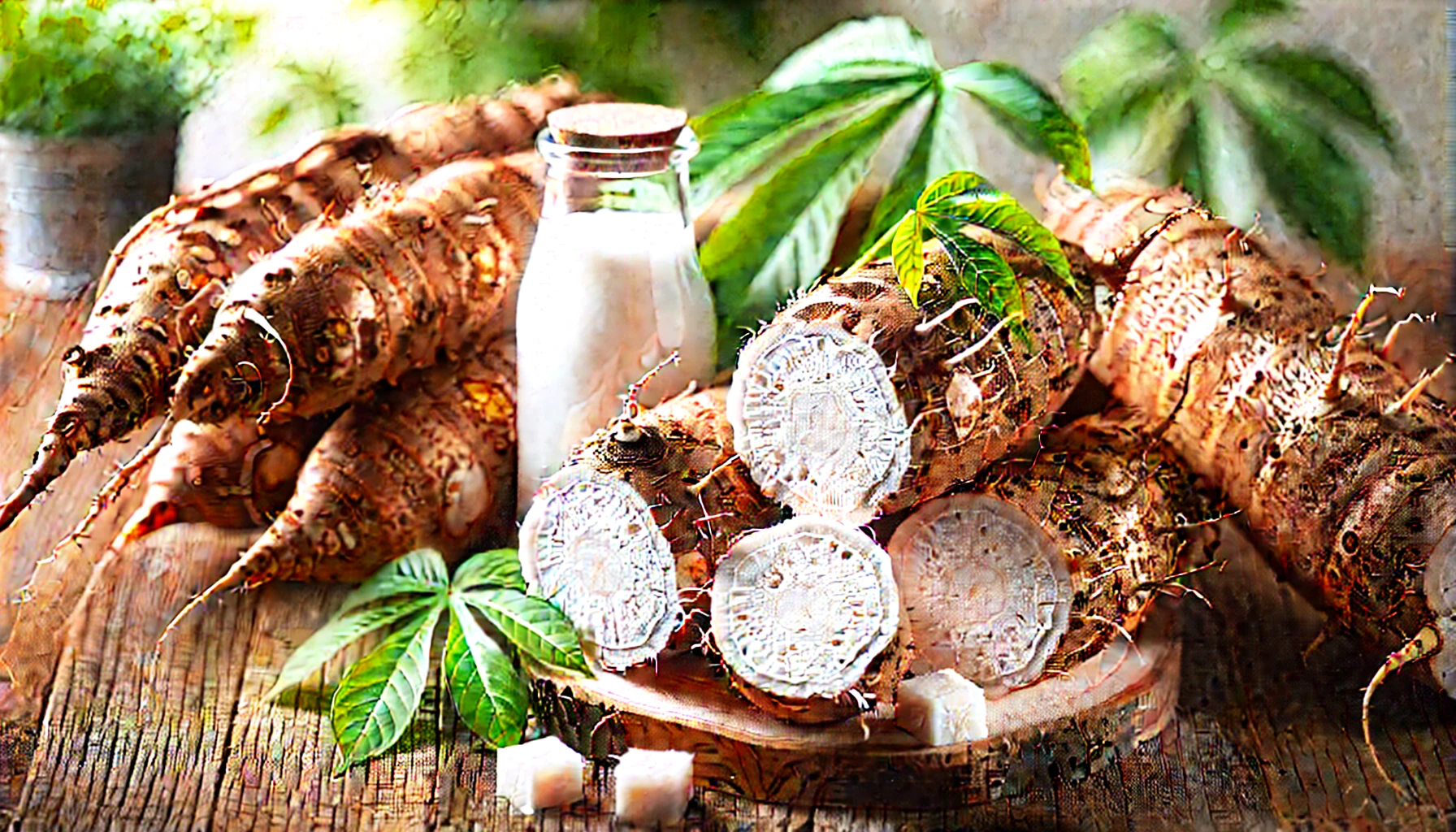Introduction :Can Dogs Eat Cassava? Understanding the Risks and Benefits
As a responsible dog owner, you’re always on the lookout for new, healthy, and safe foods for your furry friend. Sometimes, you may wonder if it’s okay to share certain human foods with your dog. One food that often raises questions is cassava, a starchy root vegetable that is commonly consumed around the world. Whether you’ve recently encountered cassava or want to know if it’s safe for dogs, this article will explore the potential benefits and risks of feeding cassava to your dog.
What is Cassava? 🌱
Cassava is a root vegetable, also known as yuca or manioc, native to South America. It is an important food source in many parts of the world due to its versatility and ability to grow in poor soil conditions. Cassava can be boiled, fried, or processed into flour, and it’s a staple in countries such as Brazil, Nigeria, and Thailand. The root is starchy and contains a high amount of carbohydrates, making it a significant energy source for people.
However, cassava also has some hidden dangers. While humans often eat cassava without problems when it is prepared properly, the raw root contains toxic compounds that can be harmful to animals, including dogs.
Nutritional Value of Cassava 🥔
Before we dive into whether dogs can eat cassava, let’s take a look at its nutritional profile. Cassava is primarily made up of carbohydrates, but it also contains small amounts of fiber, vitamins, and minerals.
Here is a table that shows the nutritional value of cassava per 100 grams:
| Nutrient | Amount |
|---|---|
| Calories | 160 kcal |
| Carbohydrates | 38.1 g |
| Fiber | 1.8 g |
| Protein | 1.4 g |
| Fat | 0.3 g |
| Vitamin C | 20 mg |
| Calcium | 30 mg |
| Iron | 0.6 mg |
| Potassium | 271 mg |
As you can see, cassava is rich in carbohydrates and provides small amounts of fiber and essential nutrients like potassium and calcium. However, cassava does not contain as much protein or fat, which are crucial for your dog’s diet. This is an important point to consider when deciding whether or not to feed cassava to your dog.
Is Cassava Safe for Dogs to Eat? 🐾
The short answer is: it depends. While cassava is not inherently toxic to dogs when prepared correctly, there are some risks associated with its consumption.
Raw Cassava:
Raw cassava contains cyanogenic glycosides, which are compounds that can release cyanide when broken down in the body. Cyanide is a toxic substance that can be deadly if ingested in large quantities. Symptoms of cyanide poisoning in dogs include:
- Vomiting 🤮
- Diarrhea 💩
- Drooling 💧
- Difficulty breathing 😮
- Seizures ⚡
Because of this, raw cassava should never be given to dogs. Even small amounts of raw cassava can cause poisoning. Always ensure that cassava is thoroughly cooked before offering it to your dog.
Cooked Cassava:
When cassava is cooked properly, the toxic compounds are broken down, making it safe for consumption. Cooking cassava involves boiling or frying it until it becomes soft and tender. However, even though cooked cassava is safer, it is still not the most nutritionally balanced food for dogs. It contains mostly carbohydrates and lacks the essential nutrients that dogs need, such as protein and fat.
While cooked cassava is not harmful in small amounts, it should only be given to dogs occasionally, as a treat, and not as a regular part of their diet.
Cassava Flour:
Cassava flour is made by drying and grinding cassava into a fine powder. It’s commonly used in gluten-free baking and can sometimes be found in dog treats. Cassava flour is generally safe for dogs to eat, but like all flour products, it should be consumed in moderation. It’s high in carbohydrates and low in essential nutrients, so feeding your dog too much cassava flour could contribute to weight gain and other health issues.
Potential Benefits of Cassava for Dogs 🐶
While cassava is not a necessary food for dogs, there are some potential benefits when given in moderation:
- Energy Boost ⚡:
Cassava is rich in carbohydrates, making it a good source of energy. If your dog is particularly active or has high energy needs, a small amount of cassava could provide them with a quick energy boost. - Digestive Health 💩:
Cassava contains fiber, which is essential for healthy digestion. Fiber helps regulate bowel movements and can aid in preventing constipation in dogs. However, it’s important to note that too much fiber can cause digestive upset, so cassava should only be fed in small amounts. - Vitamins and Minerals 💊:
Cassava contains small amounts of vitamins and minerals like Vitamin C, potassium, and calcium. While these nutrients can benefit dogs in small amounts, they should not be relied upon as a primary source. Your dog’s diet should consist mainly of high-quality protein and fat.
Risks of Feeding Cassava to Dogs ⚠️
Despite the potential benefits, there are several risks to be aware of when feeding cassava to your dog:
- Cyanide Poisoning ☠️:
As mentioned earlier, raw cassava contains cyanogenic compounds that release cyanide when consumed. Cyanide poisoning can be fatal if not treated promptly. Always make sure that cassava is thoroughly cooked before giving it to your dog. - High Carbohydrates 🍞:
Cassava is high in carbohydrates and low in protein. Dogs require a diet that is high in protein and fat, as these nutrients support their growth, energy, and overall health. Feeding your dog too many carbohydrate-heavy foods like cassava can lead to weight gain and nutritional imbalances. - Digestive Upset 🤢:
Some dogs may have sensitive stomachs and could experience digestive upset, such as bloating, diarrhea, or gas, when eating cassava. Always introduce new foods gradually and monitor your dog for any signs of discomfort. - Allergies ❌:
Although rare, some dogs may have an allergic reaction to cassava. Symptoms of food allergies in dogs include itching, swelling, vomiting, and diarrhea. If you notice any of these symptoms after giving your dog cassava, discontinue feeding it and consult your veterinarian.
How to Safely Feed Cassava to Your Dog 🐕
If you decide to give your dog cassava, it’s essential to follow these guidelines to ensure their safety:
- Cook It Properly 🔥:
Always cook cassava thoroughly before feeding it to your dog. Boil, bake, or fry it until it’s soft and easy to digest. Raw cassava should never be given to dogs under any circumstances. - Serve in Small Amounts 🍽️:
Even though cooked cassava is safe for dogs, it should only be given in small amounts. It should not replace your dog’s regular meals or form a significant part of their diet. - Avoid Seasonings 🧂:
When preparing cassava for your dog, avoid using seasonings, butter, oils, or salt. These can be harmful to dogs and may cause digestive problems or increase the risk of obesity. - Monitor Your Dog’s Health 👀:
After introducing cassava to your dog’s diet, monitor them for any signs of discomfort or allergic reactions. If your dog experiences any negative symptoms, stop feeding them cassava and consult your vet.
Can Puppies Eat Cassava? 👶🐶
Puppies are still growing and developing, and their digestive systems are more sensitive than those of adult dogs. For this reason, it is not recommended to feed puppies cassava, especially at an early age. Puppies require a diet that is rich in protein and fat to support their growth and development, and cassava does not provide the necessary nutrients. Always consult your vet before introducing new foods to your puppy’s diet.
Frequently Asked Questions (FAQs) ❓
- Can dogs eat cassava chips?
No, dogs should not eat cassava chips. These chips are often fried and contain added salt, seasonings, and unhealthy fats, which can be harmful to dogs. - Is cassava flour safe for dogs?
Cassava flour can be safe for dogs in small amounts, but it should not be a regular part of their diet. It is best used as a treat or in homemade dog food recipes, but always consult your vet. - Can cassava help with my dog’s weight loss?
Cassava is high in carbohydrates and low in protein, which is not ideal for weight loss. A dog’s diet for weight loss should be higher in protein and low in carbs. Consult your vet for the best weight management diet for your dog. - What should I do if my dog eats raw cassava?
If your dog accidentally eats raw cassava, contact your vet immediately. Symptoms of poisoning, such as drooling, vomiting, and difficulty breathing, may appear, and prompt treatment is necessary. - Can I feed my dog cassava as a regular food?
No, cassava should not be a regular part of your dog’s diet. While it can provide energy and fiber, it lacks the necessary nutrients like protein and fat that dogs need. It should be treated as an occasional snack. - How often can I give my dog cassava?
Cassava should only be given to dogs occasionally, and it should be cooked thoroughly before feeding. Ensure that it is not a staple part of your dog’s diet.
Conclusion: Should You Feed Cassava to Your Dog? 🤔
Cassava can be safe for dogs if prepared correctly—cooked thoroughly and served in moderation. However, it should not be a regular part of their diet. Dogs require a balanced diet rich in protein and fat, and cassava’s high carbohydrate content does not meet these needs. Always consult your vet before adding new foods to your dog’s diet, especially if you’re unsure about their safety.
In conclusion, while cassava is not inherently harmful when properly prepared, it’s important to remember that there are many other dog-safe foods that provide more essential nutrients for your pup. Stay informed, stay safe, and keep your dog’s health as a top priority! 🐶💚
Also Read :





One thought on “Can dogs eat cassava”